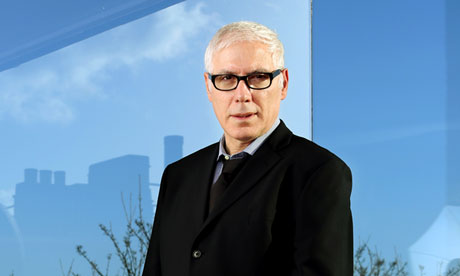And so we learn of Peter, a structural engineer with a deep-seated desire to shock - causing distress to others, no matter what the cost to himself. Of Elizabeth M, who habitually lurches from crisis to crisis, and Professor R, embarking on a gay relationship after forty-four years of marriage, who says 'for the first time in my life, I felt myself.'
Besides these cases, and many more, Grosz muses how praise can cause a loss of confidence and how anger can so often be a mask for other emotions. On why we sometimes prefer ignorance, as well as the positive aspects of paranoia and, inevitably, how we face the losses which come to haunt all of our lives. His manner is calm, reflective, wise; here writes a man who has worked as a psychoanalyst for 25 years and spent more than 50,000 hours with his patients.
With their often unexpected twists, Grosz's tales often read like a collection of short stories which just so happen to be real. At first, I felt as though I was being fed morsels, that I wanted to know more about each individual case, but then Grosz's insights started to creep up on me. First a trickle and then a flood; with psychoanalysis having its roots in Freud, these insights often derive from the interpretation of dreams, which occasionally feel like educated guesswork. My personal favourites are where Grosz uses literature to make his point:
The author Karen Blixen said, 'All sorrows can be borne if you put them in a story or tell a story about them'. But what if a person can't tell a story about his sorrows? What if his story tells him?
Experience has taught me that our childhoods leave in us stories like this - stories we never found a way to voice, because no one helped us to find the words. When we cannot find a way of telling our story, our story tells us - we dream these stories, we develop symptoms, or we find ourselves acting in ways we don't understand.His references range from William Styron to Beckett to Dr Seuss. In teaching psycho-therapeutic technique, his reading list includes Dickens' A Christmas Carol, to demonstrate people's extraordinary capacity to change their present, once they understand and move on from their past. And, in Herman Melville's short story Bartleby, the Scrivener - a tale which has previously left me bemused - he clarifies the reasons behind the eponymous clerk's negativity; why Bartleby is compelled to respond to quite reasonable requests with the words 'I would prefer not to', despite the growing harm his inaction inflicts on himself and others.
It struck me just how long many of Grosz's patients see him for, their treatment often running into years; how fallible and gradual the process often proves and how costly this must be. But, wherever you stand on psychoanalysis - and I feel I don't know enough to make an informed judgement - The Examined Life is nevertheless an elegantly written, profound and moving exploration of all that it means to be human.
The Examined Life by Stephen Grosz is published in paperback by Vintage Books. Photos courtesy of Stephen Grosz.com


No comments:
Post a Comment
I'd love to hear what you think! Please let me know in the box below